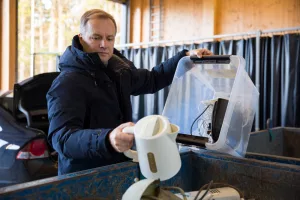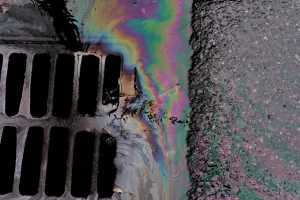As a business owner on the Gulf Coast, you know industrial waste management isn’t just a matter of tidiness — it’s about protecting the environment, complying with strict regulations, and safeguarding your company’s reputation.
That’s where Specialized Waste Systems comes in.
With its unique mix of environmental challenges and heavy industrial activity, the Gulf Coast presents specific waste disposal complexities we’re prepared to deal with. Let’s make some informed, sustainable decisions with the following deep dive into your local industrial waste disposal.
The ABCs of Waste Classification
Decoding waste categories is crucial to understanding what you are trying to accomplish. Here’s the lowdown on each type of waste we can process and dispose of:
- Hazardous Waste: Potentially harmful to humans or the environment (chemicals, solvents). Strict disposal regulations exist to protect our health and ecosystems from hazardous waste.
- Universal Waste: Common items with hazardous elements requiring special handling (batteries, fluorescent bulbs, pesticides).
- Industrial Waste: Non-hazardous waste from your operations, nonetheless requiring specialized handling due to its nature.
Knowing your waste category is essential for forging ahead with the right disposal methods and staying in compliance with regulations and restrictions.
Waste Stream Analysis 101
Imagine a comprehensive audit of everything your facility throws away — that’s what our waste stream analysis delivers. It’s about more than just identifying what’s in your trash: it’s actually a powerful tool to uncover hidden inefficiencies to exploit and drive further positive change.
Here’s what our waste stream analysis reveals, and why these tests are so crucial:
- Not just general categories of waste, but the precise materials and quantities, and where they originate within your operations.
- Finding the “Why” — Are there leaks in your processes, outdated materials, or simply a lack of awareness causing the excess waste?
- Missed opportunities? Materials considered “waste” may have value for recycling, reuse, or even as input for another company.
- Streamlining disposal, reducing waste volume, and identifying recyclable materials will all positively impact your bottom line.
- Quantifying exactly what and how much you’re disposing of is the first step toward setting meaningful reduction targets and protecting the environment.
Why conduct a Waste Stream Analysis?
Reduced waste means lower transportation and disposal costs, and potentially even revenue from selling recyclables. But those aren’t the only benefits of waste stream analysis:
- These data-driven insights can help you target process changes for maximum impact.
- You can ensure you’re properly classifying and disposing of all waste, avoiding costly fines and penalties.
- You can both quantify your environmental impact and share your waste reduction successes with customers and stakeholders.
Environmental Impacts of Improper Industrial Waste Disposal
The consequences of mishandled waste are severe on the Gulf Coast:
- Land Contamination: Illegal dumping or leaks can pollute soil, making it unsuitable for agriculture or development.
- Water Pollution: Chemicals and waste can leach into groundwater, rivers, and the Gulf itself, harming aquatic life and drinking water sources.
- Air Quality: Hazardous waste incineration or open dumping can release toxic fumes.
- Threats to fragile wetlands: The Gulf Coast’s unique wetland ecosystems are especially vulnerable to pollution.
Best Practices for Industrial Waste Minimization
Prevention truly is the most effective long-term strategy for industrial waste management. The following practices help us reduce waste, and, therefore its associated environmental and financial costs:
Material Substitution
Prioritizing less hazardous or toxic input materials whenever feasible. Materials with higher recycled content should be considered to reduce the need for raw material extraction.
Process Optimization
Thorough audits of your production processes can help you pinpoint waste generation points. We’ll analyze equipment function, leaks, spills, and areas for improvement or redesign and help you implement manufacturing principles to streamline processes and reduce material excesses.
Recycling and Reuse
We study your waste streams to identify any materials that can be recycled internally. Explore potential waste exchange partnerships with other companies to turn your waste into their raw materials, or vice-versa.
Your Gulf Coast Waste Disposal Experts | Specialized Waste
Industrial waste disposal on the Gulf Coast is multifaceted, but it doesn’t have to be overwhelming. By understanding waste classification, optimizing industrial waste management, and working towards a more sustainable future, you can protect the environment, ensure compliance, and potentially even find cost savings within your operations.
Partner with a waste solutions expert like Specialized Waste Systems. We’ll tailor a plan specific to your business by helping you understand, manage, and responsibly dispose of your industrial waste, navigating the complexities of Gulf Coast regulations and contributing to a more sustainable future. Let’s schedule a consultation today to learn more about our industrial cleaning services and waste transportation.




